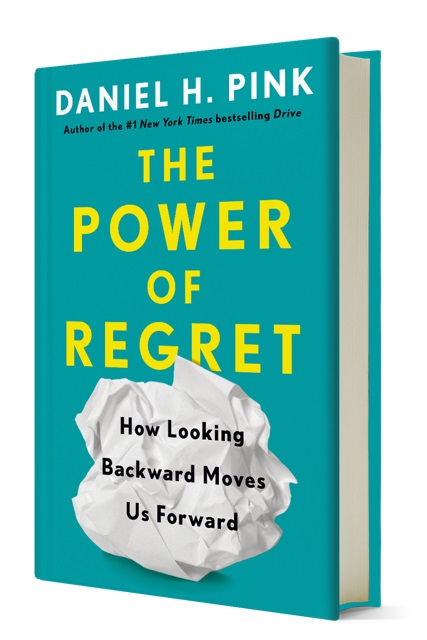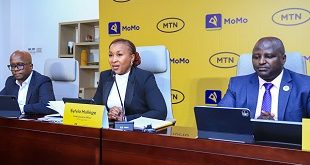

Do you employ a “no regrets” philosophy in life? If so, you might want to rethink your strategy. It might even be hampering your decision-making and overall life satisfaction.
BOOK REVIEW | DANIEL H. PINK | In Daniel H. Pink’s latest best-selling book, `The Power of Regret: How Looking Backward Moves Us Forward’, he drew on psychology, neuroscience, economics, biology and other research to challenge widely held assumptions about our emotions and behavior when it comes to the concept of regret.
Pink wasn’t messing around either. Through firsthand research he conducted with people from around the globe in his World Regret Survey, Pink was able to mine thousands of responses to accurately pinpoint what makes regret so powerful and what it can teach us to become better human beings.
Interestingly, Pink found that about 85% of us believe that we have free will, and 79% think that things happen for a reason. Thus, there is this dual role. People are both the authors and actors of regret.
“I initially found it pretty annoying,” joked Pink, “because it seems contradictory. But then I realised that there’s something perhaps profound about it.” Dan McAdams, a personality psychologist at Northwestern University, says we fashion our identities, our sense of self through narrative. And he says there are two reigning kinds of narratives.”
The first type that Pink alluded to is the “contamination narrative,” where things go from good to bad. The other is a “redemption narrative” where things go from bad to good. Psychological health is generally seeing your life as a redemption story, something that is on an upward path.
Pink said, “If we think about our lives in narrative terms, it raises the question of ‘Are you okay?’”
When we ask ourselves whether we are the characters in our life’s story or if we are the authors writing the story, the answer to Pink is clear-cut.
“Yes,” he said.
In sum, we’re both.
“I think that teasing out where we have agency and where we don’t, where it’s the context, situation and circumstance that’s dictating things—where our own efforts and agency can shape things – is a profoundly important question about life,” he continued.
After reviewing thousands of regret statements and connecting the dots with other research, Pink discovered that when people tell you what they regret the most, they indicate what they value the most. And that has a lot to do with being both the actors and authors of our own lives.
“I think a core point of the book is that regret is totally normal,” he said. “Everybody has regrets. But when I started collecting regrets, I was surprised at how little difference there was among people.”
Pink found that regrets from around the world contain incredible similarities. For example, boldness regrets. “People have these boldness regrets,” he said, “partly because they’re mortal because they know at some level that they’re not here forever, that they’re going to die, and that we’re on this planet for a vanishingly short amount of time.”
Pink discovered another of the four major regret categories centers on connection regrets.
“What connection regrets are telling us,” he confirmed, “is our need for love, that what we want out of life is love and not only romantic love.”
Pink believes society and the way we talk about love are over-indexed on the concept of romantic love, yet we need to be thinking about love in a much broader sense.
“The love we have for everybody, not only our kids, parents and other relatives but our friends, colleagues and neighbors – I think that love gives our lives wholeness, completeness, meaning and purpose,” he said.
There were more connection regrets that Pink expected when it came to people’s comments about former colleagues, an issue that might be mitigated going forward if we were to be a little more caring of one another in the workplace.
Pink mused, “Workplaces can use this reverse image of the good life to fashion a culture that makes sense. You want to have a culture that gives people a degree of stability. You want to have a culture that allows people to take sensible risks. You want to have a culture that does the right thing. You want to have a culture that has a sense of belonging. So when we think about it in those ways, we get a little bit closer to seeing a familial resemblance between this book and Drive.” (Note: Pink’s best-selling book, Drive: The Surprising Truth About What Motivates Us.)
Maybe we need to teach our leaders and team members how to feel to get to that platonic love of connection. It’s this concept of teaching and coaching about regret – and the power it holds to better decision-making, leadership, and self-development—is what is at the core of the book.
Pink does an incredible job painting the picture that we all have regrets. There really should not be a “no regrets” life mantra for any of us.
The last section of the book details a positive and progressive mechanism to learn about, deal with, and even help others with regret. Pink refers to it as the “Regret Optimisation Framework.”
“I think that people do feel regret,” said Pink, “but what’s tougher is we don’t know what to do with it.”
 The Independent Uganda: You get the Truth we Pay the Price
The Independent Uganda: You get the Truth we Pay the Price



